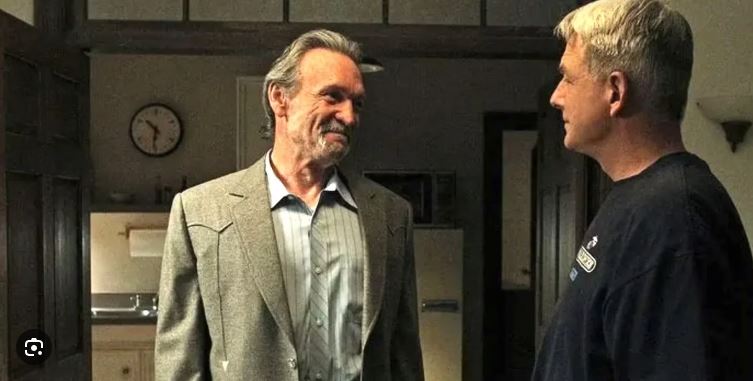NCIS: Origins star Kyle Schmid details the his process for transforming into the character of Mike Franks. Arriving on CBS in just under two months, the upcoming prequel will be narrated and executive produced by original NCIS star Mark Harmon. Taking place in the 1990s, NCIS: Origins focuses on the younger years of Leroy Jethro Gibbs (played by Austin Stowell). It will also examine Gibbs’ relationship with his mentor Franks, who is played by Being Human star Schmid.
In an interview with TVLine ahead of the debut of NCIS: Origins on Monday, October 14, at 10 PM ET on CBS, Schmid gave a detailed response about the process of transforming into Franks and “evoking” the character originated by Muse Watson. In the quote below, the actor talks about Franks’ distinctive mustache. But he also touches on wearing contacts for his eyes, to match Watson’s, and speaking differently:
“To me, the specifics were holding true to some physicality — and the mustache is one of those things. I think it sets him apart, I also think it’s very period. And the Franks character that was so well rooted in the original series, in my opinion, kind of ‘stayed’ in 1991. So it only felt right to have the mustache at that time.”
“I convinced the producers to let me wear dark brown contacts, because when you’re filling the shoes of somebody like Muse — not filling the shoes, but evoking — you want all of those things. If I look in the mirror and see Kyle Schmid when I’m about to walk out of my trailer, it’s not the same as looking in the mirror and seeing somebody completely different that you built from the ground up.”
“Every single day from 7 o’clock in the morning when I arrive, to 6 pm, 8 pm, 10 pm when I leave, this is what I do. I stay in character from the beginning of work to the end of work.”
Kyle Schmid’s Approach Is Good News For NCIS Fans

The Actor’s Comments Point To An Important Balance
Schmid, who also played Kyle Reston / Ace on The CW’s Arrow in addition to having a recurring role on the ABC crime drama Big Sky, speaks to the unique opportunity that the prequel has. At first, it will be important for NCIS: Origins to honor what’s been established in the main series, and that includes visually lining up the characters with what they look like in NCIS. That’s especially true since there’s not that many years, relatively speaking, between the events of NCIS and Origins.
But while a certain amount of visual fidelity is important, the bigger hurdle will be for Origins to distinguish itself from a narrative standpoint. NCIS has already shown so much of Gibbs’ formative moments, through flashbacks, that the prequel will have to chart its own path. There is an opportunity there as well, though, since NCIS: Origins could grow into its own standalone saga that may even appeal to those that did not watch the main series or only know of it in passing.
CBS has experienced this with another one of its franchises just recently, with Young Sheldon’s more serious single-camera tone clashing with the lighter vibe of The Big Bang Theory. Ultimately, with Young Sheldon’s recent conclusion, many critics and audiences have shared that they greatly prefer the prequel. If handled right, balancing an acknowledgment of the main series while still making separate choices, NCIS: Origins could find similar success.
